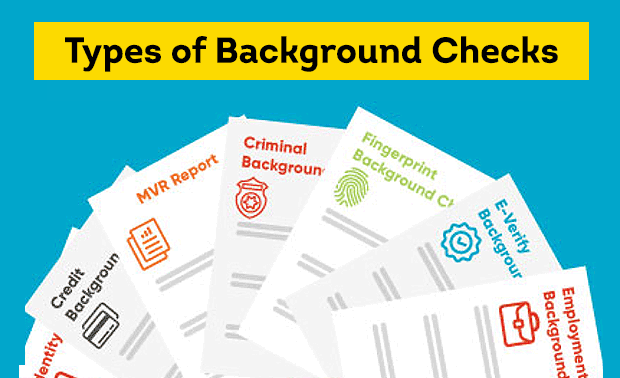What are The Different Types of Background Checks?

Background checks have been around since before the internet, but they used to take much longer. Nowadays, a Level 1 background check takes a few minutes to complete, and Level 2 requires a day or two.
Read on to learn more about the different types of background checks, why they are carried out, and what part of one’s past they cover.
Two Main Categories of Background Screening
Background screenings fall into two main categories: Level 1 and Level 2. Let us first look at the latter, as it is more specific and takes place in only one state – Florida.
Level 2 Background Checks
As we already mentioned, these are carried out only in the Sunshine State. In a level 2 screening, the subject’s fingerprints are entered into the FBI’s database and into the Florida state database to link him or her to past offenses.
By contrast, only the candidate’s name and personal details are sufficient for a standard Level 1 check.
Not all employers in Florida perform Level 2 screenings on their employees. These are only required for high-paying jobs that involve working with vulnerable social groups and valuables, and also for jobs requiring a high level of responsibility.
Types of Level 1 Background Screenings
The following paragraphs describe the six most popular types of background screenings and for which professions they are required.
1. Criminal Records Screening
A clean criminal past is typically required for public services and political appointments, and employment in the legal and financial sectors.
Recruiters run candidates’ names and social security numbers in the FBI criminal database and the criminal repositories of the U.S. district courts. They make sure that the names of the shortlisted applicants do not appear on the global terror watchlist or Interpol’s All Points Bulletin.
County-level criminal checks usually take longer because few databases have been digitalized, and most reports are prepared manually.
Work History Verification
This section of a standard Level 1 background check can expand into a separate screening report if the job position requires extensive previous experience in that industry.
Previous jobs verifications may take a week or more to complete. The employer contacts all previous employers of the candidate by phone or email and seeks to confirm each labor contract’s state and end dates.
They may also request summaries of the candidate’s performance and reasons for previous work agreements termination.
2. Reference Checks
They usually follow work history verifications and involve the employer contacting the persons the candidate has listed in their resume via email or phone.
Reference checks seek to establish the candidate’s work attitude and personal qualities such as loyalty, honesty, and reliability. In some cases, the employer may decide to carry the so-called back-door referencing, whereupon they contact former colleagues of the candidate who have not been listed for reference.
3. Academic Record Screenings
These background checks are essential for primary and secondary teachers and teacher assistants and professors, adjunct professors, and lecturers.
By scrutinizing the candidate’s academic record, the hiring institution seeks to verify their academic achievements and GPA scores.
The scope of verification may also extend to cover academic awards and scholarships, patents held, and degrees conferred.
Not all universities maintain online academic record databases, so employers usually contact them via phone or email to verify the information they need.
4. Credit Score Checks
These are usually carried out during the employee’s trial period and require their explicit consent. Credit score checks reveal the employee’s personal credit history: mortgages, credit cards, consumer loans, etc.
They also show if they have defaulted on any bills or loans and whether they’ve filed for bankruptcy.
5. Social Media Profiles Check
Some jobs require that the candidate manages company profiles on different social platforms. So, the recruiters may request to connect with the candidate online to see how they manage their social profiles.
They pay special attention to the content that the candidate shares and their views on various political, social, and environmental issues.
This type of background check seeks to establish if the candidate’s social behavior corresponds to the company’s business ethics and brand image.
6. Drug Screening
This type of background check is critical if one is applying for a job in the healthcare sector. Medics and nurses usually have access to the most powerful prescription drugs, including opioid analgesics.
So, hospital managers want to ensure their employees do not have histories of drug abuse. Once hired, healthcare workers undergo regular testing for controlled substances in their blood or urine.



